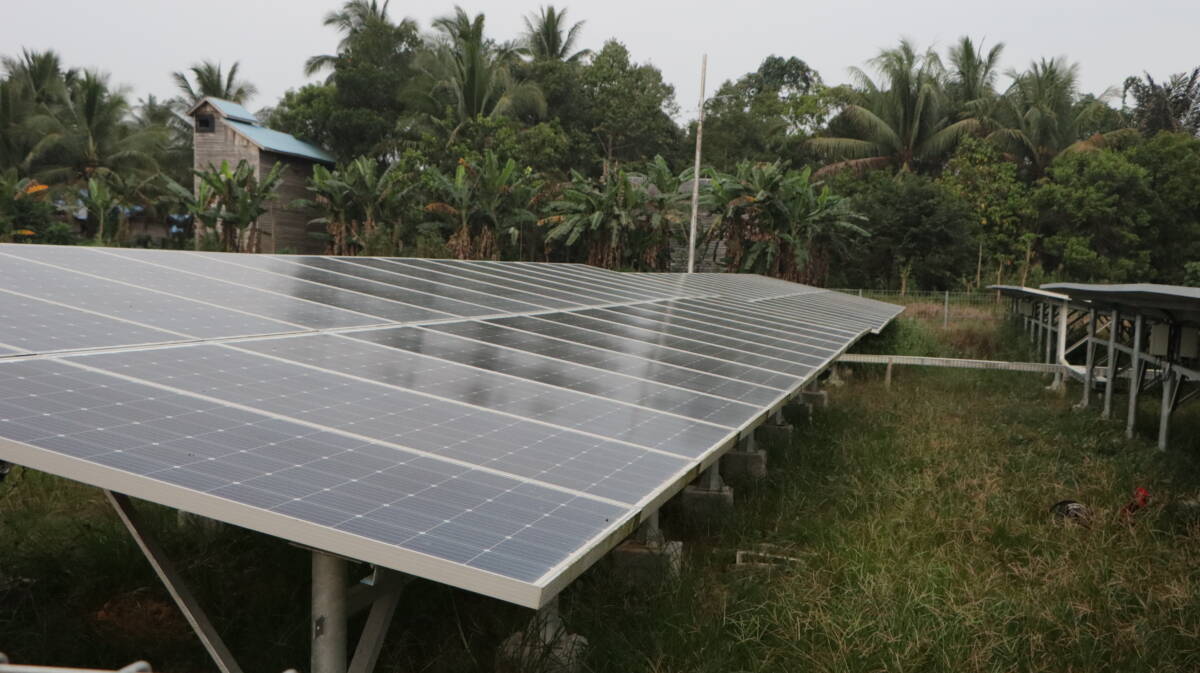Jakarta, Indonesia-based clean energy policy organisations Institute for Essential Services Reform (IESR) seeks to shift fossil fuel subsidies to renewables and is urging the Indonesian government to implement a clear, measurable plan for the upcoming national energy policy.
Indonesia’s energy transition must accelerate following limited progress in recent years, according to the latest IESR report says.
The think tank said in its “Indonesia Energy Transition Outlook 2025” that renewable energy currently makes up 14% of Indonesia’s national energy mix, considerably lower than the 23% target set for 2025.
It said renewables have struggled to grow due to the preference of using coal as an indigenous resource and added that all of Indonesia’s industrial sectors remain significantly dependent on fossil fuels.
While President Prabowo Subianto has committed Indonesia to ending the use of coal-fired power plants by 2040, the report calls for urgent action.
“The government needs to progressively reduce fossil fuel subsidies and shift subsidies to the renewable energy sector,” said IESR’s Raditya Wiranegara, one of the authors of the report.
“In addition, President Prabowo’s statement about the early retirement of coal-fired power plants in 2040 must be realised immediately, starting with the most inefficient coal-fired power plants, instead of equipping coal-fired power plants with CCS/CCUS technology.”
IESR’s Alvin Putra Sisdwinugraha, one of the report’s lead authors, told pv magazine that 2025 will be pivotal to Indonesia’s energy policy direction, with the 10-year National Energy Policy set to be approved by the new government.
“Key targets of this new policy include a renewable energy mix target of 19% to 21% of primary energy supply in 2030. Learning from the previous National Energy Policy implementation, which never met the renewable mix targets, a clear and measurable action plan from implementation bodies will be crucial in achieving this target,” Sisdwinugraha said.
Sisdwinugraha added that PLN, Indonesia’s state-owned power distribution company, has prepared 13.3 GW of new renewable energy projects in its upcoming electricity supply plan, in addition to what is included in the previous plan. Solar and wind projects make up 8.2 GW of the new capacity.
Other challenges to Indonesia’s energy transition cited in the report are financial gaps, regulatory uncertainty and infrastructure readiness. The organisation said both local and foreign investment are crucial to finance the transition and advises regulatory reforms and risk-sharing mechanisms be adopted to enable green finance.
IESR’s latest report also noted that Indonesia has been underutilising its vast solar potential. It said the country sees an average solar irradiance of more than 4.8 kWh/sqm per day, with potential to generate between 7.7 TW and 20 TW of solar power.
Indonesia’s installed solar capacity surpassed 700 MW earlier this year, according to IESR’s solar outlook report, published in October. The report noted that 16.92 GW of solar projects are currently in the pipeline across the country.
This content is protected by copyright and may not be reused. If you want to cooperate with us and would like to reuse some of our content, please contact: editors@pv-magazine.com.








By submitting this form you agree to pv magazine using your data for the purposes of publishing your comment.
Your personal data will only be disclosed or otherwise transmitted to third parties for the purposes of spam filtering or if this is necessary for technical maintenance of the website. Any other transfer to third parties will not take place unless this is justified on the basis of applicable data protection regulations or if pv magazine is legally obliged to do so.
You may revoke this consent at any time with effect for the future, in which case your personal data will be deleted immediately. Otherwise, your data will be deleted if pv magazine has processed your request or the purpose of data storage is fulfilled.
Further information on data privacy can be found in our Data Protection Policy.